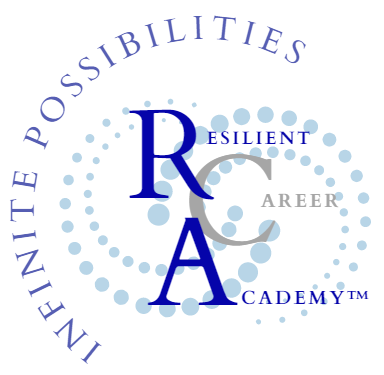The term resiliency is a buzzword in the business world today. Companies want their businesses, applications, and workforce to be resilient, but what does it mean, and why is it essential for one’s career?
Resilience Defined
Resilience is “the capacity to withstand or to recover quickly from difficulties.”
According to the American Psychological Association, “Resilience is the process and outcome of successfully adapting to difficult or challenging life experiences, especially through mental, emotional, and behavioral flexibility and adjustment to external and internal demands.”
It is fundamentally the ability to bounce back from adversity. It is not preventive; it is responsive. It does not mean that we don’t face difficulties and challenges; it means that we can adapt and recover quickly when we face them.
“Career resilience is the ability to adjust to career change, whatever the circumstances may be, and to navigate all the ups and downs and twists and turns on your career path.” Emily Courtney
Resilience Can Be Learned
As I’m writing this, I have the snarkiest expression on my face as I think about how influential companies like Forbes and Harvard Business Review point out that resilience can be learned, which is great if you are not resilient, I suppose.
What they don’t say is that to build your resilience muscle, you must be knocked on your butt a lot and get back up. Building resilience is a lot like watching Rocky Balboa fight…get knocked down…get back up…rinse and repeat. That is how you build resilience. Any takers?
Why Resilience is Important
Adversity is part of life. Resilience is important because pain, suffering, and trouble are part of life…a big part of life. As much as we would all love to live in a fantasy world where everything was perfect, and there were no difficulties, that is not reality. Stuff happens.
This is the fallen world we live in, and it comes with the territory. We need to be able to get back up when we fall. Can you imagine if a baby, who is learning to walk, refused to get back up because they had fallen? Can you imagine a workforce with that mindset? What if we all stayed down when we were knocked down?
Resilience builds strength. Falling and getting back up builds our strength. There is a reason the military does millions of push-ups in boot camp…it builds strength.
Not only does it build physical strength, it builds mental and emotional strength, as well. When we have resilience, we will not cry to Mommy when we get knocked down because we have the physical strength and mental/emotional fortitude to get back up.
Resilience changes our mindset. I keep returning to our military because, besides trauma survivors, they are the most resilient group out there. If they weren’t resilient at the beginning of boot camp, they would have learned it by the time they graduated. The marine corps uses the motto: Adapt, Improvise, Overcome.
Can’t you just feel how powerful that mindset is? It says no matter what obstacle you throw my way; I will figure it out…I will overcome it…I will win. YES!!! That is the mindset we all need in our lives and careers.
The Resiliency of the Trauma Survivor
Some people need to be taught resiliency, but not trauma survivors. In the South, we would say, “I done did that.” By function of what we went through and survived, we have PhDs in resiliency.
Most of us can’t count how many times as children we were knocked down, abused, discounted, or suffered some type of adversity…and we still got back up. We adapted…we improvised…we survived…we overcame. Yes, you did that!!!
The average trauma survivor, however, will not even realize they are resilient because they are so focused on the shame of what happened to them. When we can pan out our focus to see the whole frame, we will see how we got back up and continued to move forward. Rocky Balboa has nothing on us. Trauma survivors ARE resilient…FULL STOP!!!
I have this sticky note on my monitor in front of me that says, “I can do hard things.” How do I know that? Because I’ve done hard things all my life. I have done it before, and I can do it again. Heck, I have made a career out of doing things that other people thought were impossible because I wasn’t afraid of facing hard challenges, and I had confidence in my ability to adapt and overcome.
Applying Resiliency to Our Careers
I already established that trauma survivors are resilient, but how do we take the resiliency we painstakingly learned as a child and apply it to our careers?
Remind yourself that you are resilient. You have plenty of proof points in your life, memorials, if you will, of your resilience. We often want to forget the past and just move forward. I get that, but I invite and challenge you to reflect on the past and focus on how you overcame that traumatic situation. Don’t focus on what happened to you, but rather on how you responded to what happened to you. We need to remember those wins because they are wins. We need to tell ourselves…if I can survive that crap, I can undoubtedly deal with this crap :)!!! I’ve got this!!!
Expect adversity. We should not be surprised when trouble comes. As a matter of fact, many of us are triggered when things seem to be going well. We start looking around for the other shoe to drop. Trouble comes because we live in a fallen world, not because something is wrong with us or we’ve done something to deserve it. It’s OK; nothing is wrong with us…it’s just life.
Build a support network. There will be times when we get discouraged in this challenging journey called life, and sometimes we need supportive others to help us get up. Therapists, coaches, family, friends, and mentors can all provide the support we need to remind us when we’ve forgotten how strong and resilient we really are.
Establish memorials. I have had times of deep discouragement in my healing journey, and during those times, my therapist whipped out her notes and reminded me of all the breakthroughs and wins I’ve had along the way. We need to set up visual cues that remind us of past successes and that we can do it again. Write them on a sticky note and hang them on your desk, like I do.

Be flexible, be adaptable. Sometimes we must use every tool in our toolbox to create a solution. Have you ever heard the saying, “When all you have is a hammer, everything is a nail?” You have accumulated many tools during your traumatic childhood…don’t be afraid to use them. I have this guy sitting on my desk every day to remind me to be flexible.

The Resilient Career Academy™
I have been developing a group coaching membership program for trauma survivors called The Resilient Career Academy™. This came about in response to a discovery call with a survivor who was interested in trauma recovery career coaching but expressed concerns about being able to afford my services because her first monetary priority was therapy (which I support, by the way).
I prayed and racked my brain about how I could provide trauma recovery career coaching to more people AND make it affordable. It is interesting how God works…in my inbox, I had an email invitation to a FREE workshop that wouldn’t go away (you know what I’m talking about). The workshop was about how to create a membership program, so before I deleted it for the fifth time, I considered that this might be God’s answer to my prayer…so I went.
Within the first five minutes of the webinar, I realized that this definitely was the answer to my prayer for how I could serve more people and keep it affordable.
I have spent the last eight weeks learning how to set up a coaching membership to help trauma survivors move from triggered, disempowered, and underemployed to regulated, empowered, and finding a fulfilling and satisfying career.
I will launch The Resilient Career Academy™ (RCA) membership program on September 2nd in honor/support of CPTSD Awareness Day.

Click The Resilient Career Academy™ for more information.
As always, you do not have to walk this journey alone.
Contact me to schedule your free discovery call.
Get on the waiting list for the online course. You won’t want to miss it.
If you want to stay informed on the programs, tools, and training I offer, sign up for my mailing list.
Guest Post Disclaimer: Any and all information shared in this guest blog post is intended for educational and informational purposes only. Nothing in this blog post, nor any content on CPTSDfoundation.org, is a supplement for or supersedes the relationship and direction of your medical or mental health providers. Thoughts, ideas, or opinions expressed by the writer of this guest blog post do not necessarily reflect those of CPTSD Foundation. For more information, see our Privacy Policy and Full Disclaimer.

Believer. Leader. Learner. Advocate. Writer. Speaker. Coach. Mentor. Triathlete. Encourager. Survivor.
Most of all, I am a fellow traveler on the rocky road called, Trauma Recovery. My mission is to minimize the effects of trauma for survivors in the workplace.



